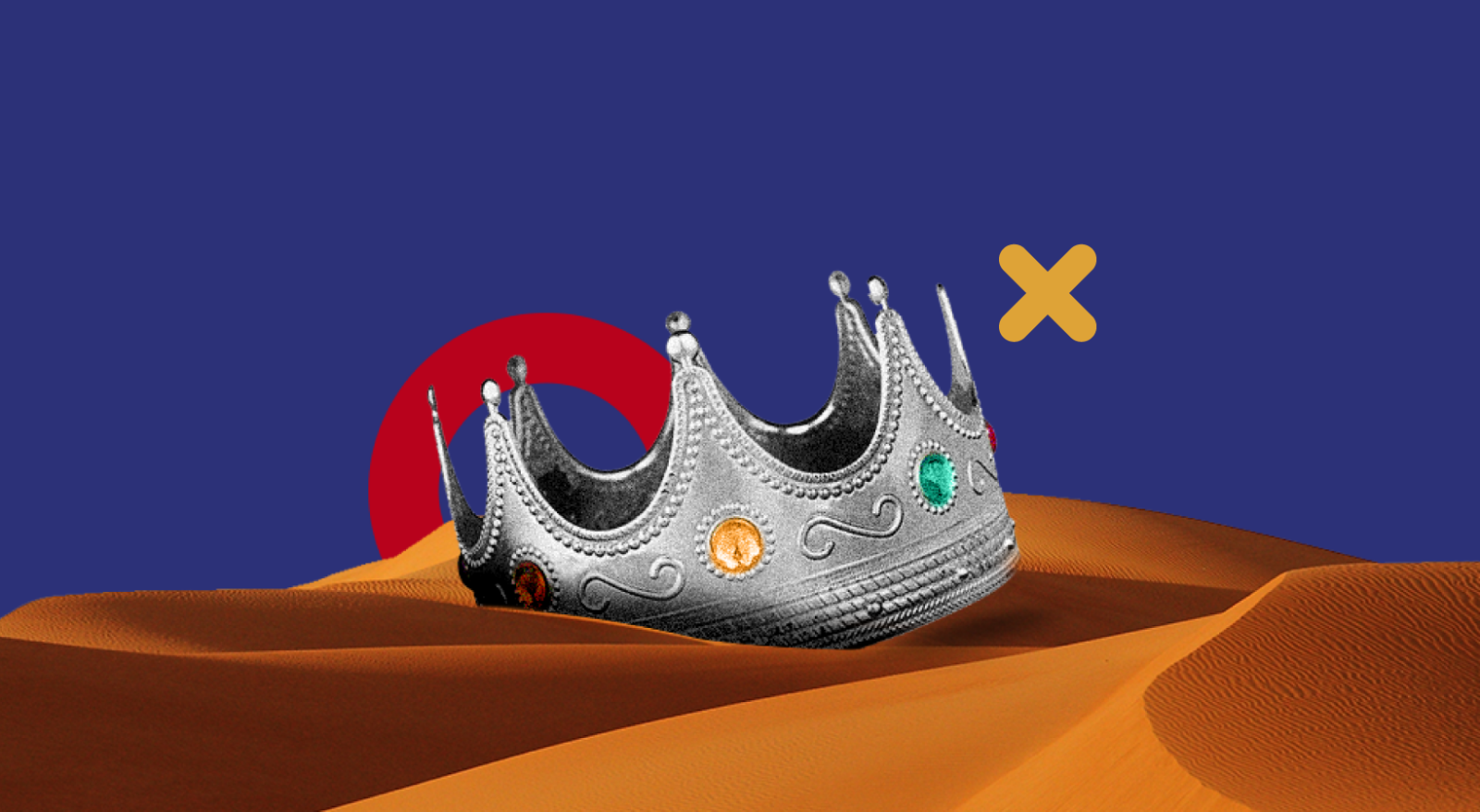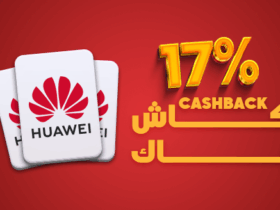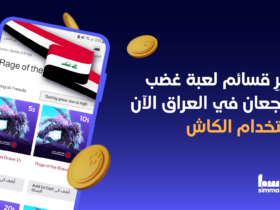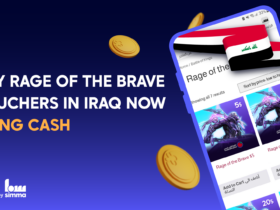There is a popular Egyptian proverb that says, “اللى معاه قرش محيره يجيب حمام ويطيره” [He who has extra cash and doesn’t know where to spend it buys pigeons and sets them free]. While the quote is meant to be satirical of those who spend money on unnecessary things, it also perfectly embodies the Arab world’s relationship with cash. The majority of the region’s population would rather buy pigeons and set them free than deposit their cash in banks or perform digital transactions.
The ever-growing mounds of physical cash circulating MENA are accumulating into hill-sized speed bumps, slowing down the region’s integration into the global digital economy. Everyone from major state financial institutions to rising fintech startups is frantically exploring how best to digitize transactions, bank the un- and underbanked, and permanently abolish the pigeon liberation movement.
Just How Much Physical Cash Is Out There Really?
Quite a lot. Data collection in 2020 for Egypt showed that 74.7% of all transactions happening that year were executed in cash. The COVID-19 pandemic and the subsequent restrictions and incentives made by Egypt’s central bank aimed at the informal economy have definitely curbed that number since.
However, the world is going cashless much faster than the North African nation can keep up. Egypt was the world’s second most cash-reliant country in 2022, with over half of the payments made in the country that year being in cash. Around 67% of the population remains unbanked. If that’s not startling enough, some analyses place Morocco, another MENA nation, as the number one cash-reliant country in the world.
Traveling westward down the North Coast toward Algeria, we find a similarly cash-oriented population. Algeria’s cash in circulation accounted for 19.5% of the country’s GDP in 2013, falling in the higher end of that metric worldwide. That number jumped to 29.6% of GDP four years later, of which an estimated physical DA2 trillion was in household savings, tucked under loose floorboards outside of the integrated economy.
Some economies have taken wider strides to curb cash reliance. In 2021, the Saudi Central Bank (SAMA) announced that the volume of electronic transactions surpassed cash payments for the first time in the Kingdom’s history that year. Digital payments saw a spike, accounting for 94% of all funds transferred, and electronic payments specifically in the business sector jumped to a whopping 84%, up from a measly 51% only two years prior.
While some countries, particularly in the Gulf, have followed suit, cash is still very much king in most MENA populations. Saudi’s northern neighbor, Iraq, is a prime example of a Middle Eastern economy that’s heavily cash-reliant. The Central Bank of Iraq published insights in 2022 putting the amount of physical Iraqi dinars in circulation at 84 trillion, which amounts to almost 28% of the country’s GDP. To put these numbers into perspective, the most widely used currency in the world is the US dollar, and the circulation of its physical denominations stands at around 10% of the country’s GDP. In India, a major emerging economy, that percentage is 14.5%.
A diminutive 23% of households in Iraq have accounts at any sort of financial institution according to the World Bank. The obvious lack of interest in joining the integrated economy starts to make sense when you consider that around 98% of employers pay salaries in hard cash, and 50% of suppliers are also paid in physical currency.
So Why Is MENA So Cash-Obsessed?
It’s crystal clear that the peoples of the Arab world are hesitant to give up their hard-earned physical cash in exchange for bank cards or numbers on digital screens. To better understand why—and for central banks, financial regulators, and fintech startups to effectively bridge the gap between cash-devoted Arabs and the cash-allergic global financial system—we need to look at the macroeconomic, cultural, and geopolitical contexts of the region.
The first and one of the biggest challenges facing official financial systems is that many—if not most—people in the region simply don’t trust banks. Sometimes that distrust of financial institutions can be warranted, as is the case in Lebanon. The country has been ravaged by economic hardships for the last decade, fueled by political turmoil, the tribulations of the COVID-19 pandemic, the dollarization of the Lebanese economy, and other crises such as the 2020 Beirut explosion. The sluggish and often ineffective response by authorities has sent the value of the Lebanese lira spiraling downwards, sparking nationwide bank runs. In an effort to impose capital controls, authorities have regularly made it impossible for citizens to access or withdraw their savings from banks, causing confidence in the banks to deteriorate rapidly, and the reliance on cash—especially US dollars—in Lebanon to rise significantly. This is also true of businesses in Lebanon; many no longer accept card or digital payments out of fear of not being able to access these revenues due to the economic climate.
In Iraq, a lack of access to digital payment systems and a distrust in their competence are two of the factors keeping the country cash-driven. Following years of war and political unrest, the Iraqi economy remains under development. Almost all salaries are paid in cash, and few citizens have bank accounts. Efforts to inch the population towards integrating into a digital financial system, including the granting of licenses to some e-wallets and e-payment services, aren’t yet gaining traction. Iraqis continue to not see the value in adopting e-payments, especially when the platforms are often unreliable and don’t offer a clear benefit over cash. Even when it comes to e-commerce, some platforms are seeing 98% cash-on-delivery orders and only 2% online payments. Established payment service providers such as Apple Pay, PayPal, and Stripe that can help spur excitement around e-payments don’t operate in Iraq, deeming the country a high-risk market for their financial services.
Immense informal or shadow economies, which are parts of a country’s economy that are neither taxed, monitored, nor regulated, are also major obstacles on the road to a banked and cashless life across MENA. Especially prevalent in emerging economies, the informal economy can constitute a large share of the country’s GDP and is almost completely operated in physical cash. In Egypt, the informal economy made up an eyebrow-raising 40% of the country’s GDP and employed almost 50% of the workforce in the fiscal year 2020-2021. A World Bank report from 2022 stated that more than 70% of the Moroccan labor force operates in the informal economy, making it the highest in the region.
What Are We Doing About All That Cash?
Financial inclusion, banking the unbanked, and reducing our reliance on cash don’t have a one-size-fits-all solution, especially when it comes to MENA. The development of markets and economies in the Arab world has excelled in certain verticals while remaining lacking in others. For instance, while the majority of the region remains unbanked and cash-dependent, MENA has some of the world’s highest SIM card penetration rates and, in markets where true value and function for the service was found, some of the world’s quickest mobile wallet adoption numbers. Mobile payments could very much be the solution that helps rid the MENA masses of cash, and usher the region into the integrated economy.
Initiatives and ideas that tailored their solutions—especially those focused on payments and finance—to the habits, behaviors, and incentives of MENA populations have thrived, building smart bridges between the status quo and the desired outcome. Common moves across public sectors in the region include initiatives to start paying civil servants and other recipients of public funds electronically instead of in cash. In 2019, Iraq introduced the Qi Card, which paid over 7 million government employees and welfare recipients their dues electronically. Cardholders could then either pay directly with the card or withdraw the cash from ATMs. The card also provided them with further useful features such as access to microloans and salary advancement programs. In Jordan, the government started to dispense salaries and welfare payments digitally at the beginning of the COVID-19 pandemic to avoid physical contact. A survey run by JOPACC, the preferred digital payments regulator in Jordan, found that 86% of the locals who were receiving funds electronically from the state had planned to continue doing so even after social distancing regulations were lifted.
The story of Fawry, Egypt’s first and biggest electronic payment gateway, is a prime example of digitizing cash transactions for a heavily unbanked population. There were two things that the founders of Fawry knew when establishing the company in 2008: Egyptians were, and will likely continue to be, cash-dependent, and there will always be a kiosk on every corner in Egypt. So why not leverage both to the advantage of financial inclusion? Fawry kicked things off, rapidly building a payments network, by arming thousands of snack and beverage kiosks with their Fawry POS machines. Users could deposit cash at a Fawry POS and use the credit to pay bills, transfer funds, buy tickets, and so much more. What Fawry did was twofold; it created a space for cash in the global digital economy, and it familiarized users with fintech, making it part of their everyday lives.
At Tamatem Games, we’re focused on bridging that cash-to-digital gap for MENA mobile gamers. Tens of millions of people across the region play mobile games every day, and a fair amount of them lack access to online bank cards or e/m-wallets to pay for their games. Our payment platform allows gamers—regardless of where they are in the region—to top up their game wallets using various payment channels. And if you’re a mobile gamer in a cash-dominant country that isn’t ready to join the global digital economy just yet, we’ve included cash payment channels so you can get your hands on the latest perks, power-ups, and expansions to unlock your favorite game’s full potential without compromise.






